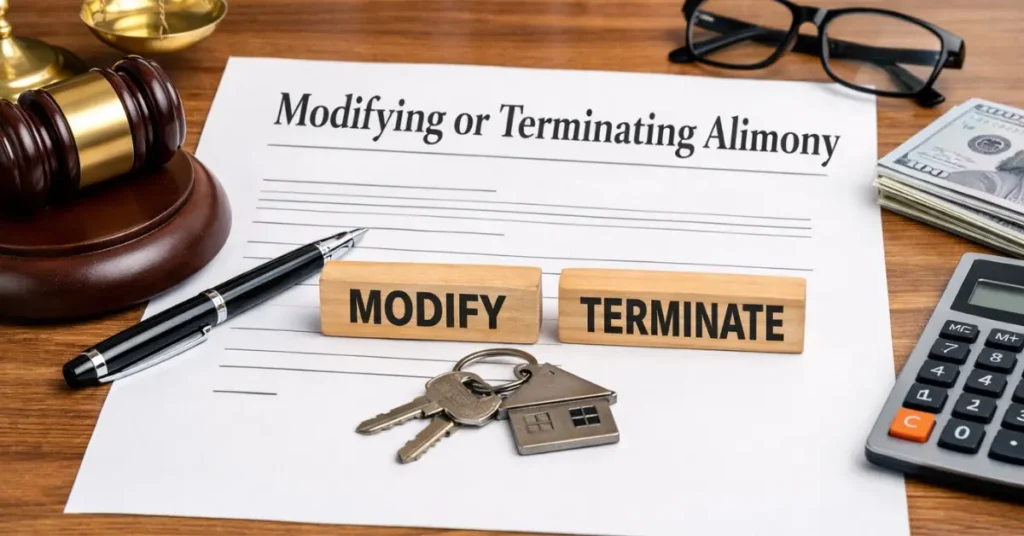Alimony, or spousal support, is a financial obligation that one spouse may owe the other after a divorce in North Carolina. Its purpose is to help the lower-earning spouse maintain a reasonable standard of living. However, many individuals seek ways to minimize or avoid this obligation.
In North Carolina, courts consider factors like income disparity, the duration of the marriage, and any marital misconduct when determining alimony. Legal grounds to contest alimony include proving financial independence, demonstrating a short marriage, or highlighting instances of adultery.
To navigate these complexities, consulting a qualified family law attorney is essential. Notable attorneys like Krispen Culbertson, Matthew Robert Arnold, and T. Michael Lassiter Jr. have extensive experience in handling alimony cases and can provide tailored legal advice.
This guide will help you understand the legal landscape and explore strategies to either reduce or eliminate alimony payments effectively.
Understanding Alimony in North Carolina
Definition and Purpose of Alimony
In North Carolina, alimony is awarded to ensure a fair balance in financial wellbeing between spouses following a divorce.
Alimony, also known as spousal support, can take different forms: post-separation support (temporary) and permanent alimony.
- Post-Separation Support
A temporary form of alimony awarded until the court determines a final decision. It is designed to aid the dependent spouse until permanent arrangements are set.
- Permanent Alimony
This is longer-term support awarded based on various factors, including the duration of the marriage, income disparity, and whether any marital misconduct took place.
Factors Considered by Courts
The North Carolina court system considers several criteria, including average child support NC, to determine if a spouse qualifies for alimony:
- Income Disparity
If one spouse has a significantly higher income than the other, the court may order alimony to balance this gap.
- Duration of Marriage
Marriages that last longer generally lead to higher alimony payments.
- Marital Misconduct
Acts such as adultery or abuse can significantly impact alimony decisions, especially if committed by the spouse seeking support.

Legal Grounds for Avoiding Alimony
Certain circumstances can disqualify a spouse from receiving alimony, especially when acts of marital misconduct have been demonstrated, which often overlap with recognized grounds for divorce NC.
- Adultery and Infidelity
Under North Carolina law, if the spouse seeking alimony engaged in adultery or marital misconduct, it can prevent them from receiving support.
- Financial Independence
If the requesting spouse is financially independent and has a self-supporting income, they may not be eligible for alimony.
- Short Marriage
Marriages lasting only a few years may lead to minimal or no alimony support, as the dependency factor is often less substantial.
Strategies to Minimize or Avoid Alimony Payments
Several strategies may help mitigate or entirely avoid the obligation to pay alimony in North Carolina:
Negotiating a Settlement
Negotiating a fair settlement with your spouse before the court intervenes can help reduce or eliminate alimony obligations.
When negotiating alimony, it is often beneficial to agree on one-time payments or alternative arrangements to meet financial responsibilities.
Demonstrating Financial Hardship
Proving financial hardship can potentially reduce or even dismiss alimony obligations. Evidence of financial strain, including debt and reduced income, can influence the court’s decision, especially if the supporting spouse shows they cannot sustain an alimony commitment.
Length of Marriage
A shorter marriage generally results in a reduced alimony obligation. Demonstrating that the marriage was brief can lessen the duration or amount of support required, as North Carolina courts consider marriage duration a critical factor.
Utilizing Prenuptial and Postnuptial Agreements
A well-constructed prenuptial or postnuptial agreement can address alimony issues, providing a pre-defined understanding between both parties on financial responsibilities.
These agreements can protect the supporting spouse from future financial obligations by establishing terms before any potential divorce.

Modifying or Terminating Alimony
There are specific scenarios in which alimony may be modified or terminated in North Carolina:
- Remarriage of the Recipient
If the dependent spouse remarries, alimony payments generally terminate immediately.
- Cohabitation
If the recipient spouse begins cohabiting with a new partner, the court may consider terminating alimony.
- Financial Changes
Substantial changes in income or employment status of either party may lead to a modification of alimony terms.
Steps to Request Modification
- Document Financial Changes
Documentation such as income statements and expense reports is essential.
- File for Modification
A formal modification request must be filed with the court, providing reasons and supporting evidence.
When to Seek Legal Assistance
While self-representation is an option, consulting a family law attorney provides clarity, ensuring that your approach aligns with North Carolina laws.
A qualified attorney can assist with filing for modification, understanding legal grounds, and navigating negotiations, making hiring a family law attorney an important step in complex alimony matters.
Legal assistance also increases the likelihood of achieving a favorable outcome, as family law attorneys bring experience and insights into court expectations.
Conclusion
Avoiding alimony in North Carolina is complex, involving legal knowledge and often, the assistance of a family lawyer.
Exploring all options, from demonstrating financial independence to negotiating with your spouse, can make a difference in the final outcome.
Although avoiding alimony is possible in some cases, it is crucial to adhere to legal standards, uphold integrity, and aim for a resolution that respects the rights and needs of both parties.




